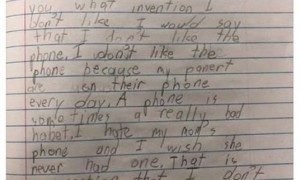中共中央政府承诺,作为一个试验项目,将每年分拨160亿人民币(25亿美元)给全国680个县市,以保证所有小学生和中学生将得到每天3元的餐补以提高营养价值。这是10月26日国务院常务会议后发布的生明中的一部分。根据声明,被选为试点的学校将建立食堂,并加强食品安全保障。所有津贴均用来给学生购买食物,不得以现金形式分发给学生或其家长。
The central government pledged to allocate about 16 billion yuan ($2.5 billion) annually to 680 counties or cities nationwide as pilot projects, ensuring that all primary school and junior high school students will receive a daily subsidy of 3 yuan to improve their nutrition.
The decision was part of a statement released after a State Council executive meeting on Oct 26.
According to the statement, canteens will be built in schools selected for the pilot project and food safety enhanced. All subsidies will have to be used to buy food for students and cannot be distributed to students or their parents in cash.
Deng Fei, initiator of the charitable movement Free Lunch for Children, said he welcomed the State Council's decision to provide nutrition subsidies to rural students.
However, Deng said he was still slightly concerned about whether local governments could make use of the 16 billion yuan in a transparent and efficient way. He hoped that the money allotted did not get wasted or, worse, embezzled as a result of corruption.
"I have not received any information about how the 16 billion yuan will be used and how the project will be carried out," Deng said.
Dang Jun, one of the movement's coordinators, also pointed out that the government's subsidy standard of 3 yuan per day was far from enough for those living in boarding schools.
"On an average, they can spend only 1 yuan on each of the three meals, which is far from enough, to say nothing of the increasing food prices," Dang said.
Dang added that they will stop giving financial support to the schools that will now benefit from government subsidies and turn to a fresh set of children in need.
"So far, we have received applications for free lunch for nearly 70,000 students, and we are on a tight budget," he said.
Li Duanhua, an educational official from Huaxi township in Southwest China's Guizhou province, told China Daily that all local schools were asked to vacate one classroom, which will be used as a canteen.
Two out of nine local primary schools have set up canteens and are providing free lunches to their students, he added.
Yu Jiantuo, program director of the China Development Research Foundation, said the grassroots free lunch program will act as a pilot project in exploring a low-cost and sustainable model to improve the nutrition status of students in poor areas.
"In the future, the collaboration between government and social organizations could be further strengthened, for example, the government could purchase services provided by these organizations, and the two sides could supervise each other," Yu said.
Deng Fei, a reporter at the Phoenix Weekly magazine, said he had found that it was very common for poor students to study on an empty stomach in the remote mountainous regions.
The schools were located too far away from their homes to travel back for lunch and did not run a canteen service.
Deng's movement has raised about 24 million yuan from the public since April.







